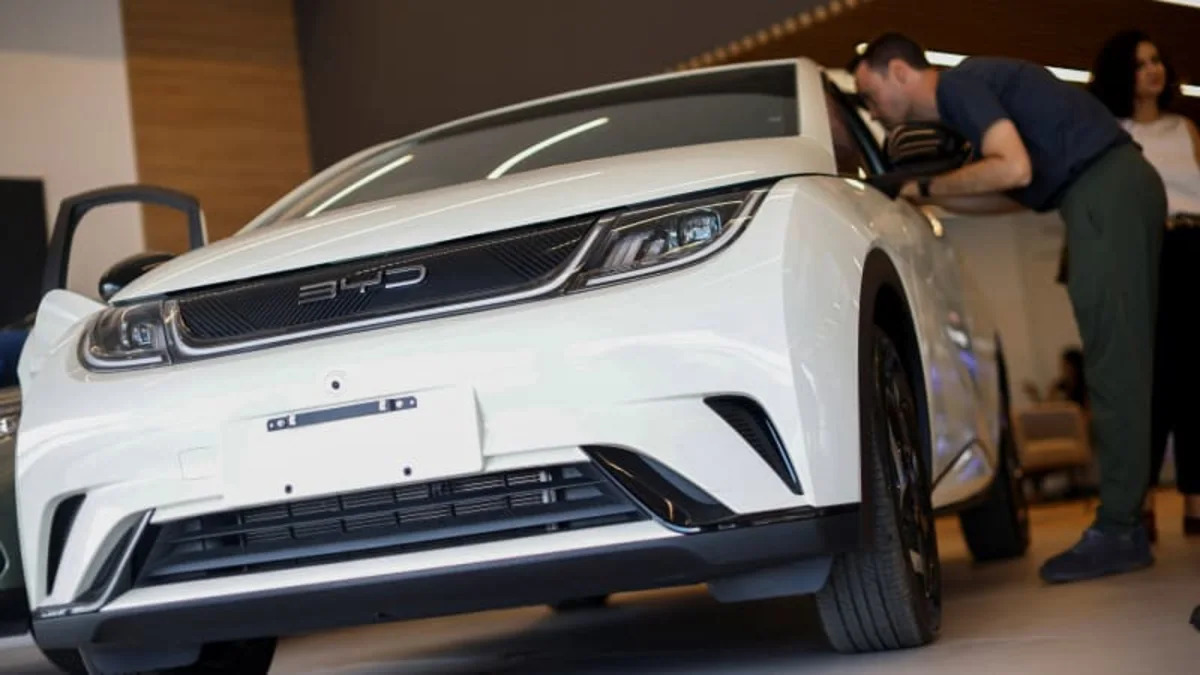WASHINGTON — A U.S. manufacturing trade group on Friday urged the Biden administration to take steps to block the import of low-cost Chinese automaker imports from Mexico that it says could threaten the viability of American car companies.
"The introduction of cheap Chinese autos — which are so inexpensive because they are backed with the power and funding of the Chinese government — to the American market could end up being an extinction-level event for the U.S. auto sector," the Alliance for American Manufacturing said in a report.
The group argues the United States should work to prevent automobiles and parts manufactured in Mexico by companies headquartered in China from benefiting from a North American free trade agreement. "The commercial backdoor left open to Chinese auto imports should be shut before it causes mass plant closures and job losses in the United States," the report said.
Vehicle and parts produced in Mexico can qualify for preferential treatment under the U.S.-Mexico-Canada trade agreement as well as qualifying for a $7,500 electric vehicle tax credit, the report noted.
The Chinese Embassy in Washington and the U.S. Trade Representative office did not immediately comment.
The issue has taken on new interest after news outlets reported that China's BYD plans to set up an electric vehicle factory in Mexico. BYD, known for its cheaper models and a more varied lineup, recently overtook Tesla to become the world's top EV maker in terms of sales.
Tesla itself announced plans almost a year ago to build a factory in Mexico, in the northern state of Nuevo Leon. In October, Mexico said a Chinese supplier for Tesla and a Chinese technology company would invest nearly a billion dollars in the state of Nuevo Leon.
A bipartisan group of U.S. lawmakers has urged the Biden administration to hike tariffs on Chinese-made vehicles and investigate ways to prevent Chinese companies from exporting to the United States from Mexico.
A group of lawmakers urged U.S. Trade Representative Katherine Tai to boost the current 27.5% tariff on Chinese vehicles and said USTR "must also be prepared to address the coming wave of (Chinese) vehicles that will be exported from our other trading partners, such as Mexico, as (Chinese) automakers look to strategically establish operations outside of (China)."
Alliance for Automotive Innovation CEO John Bozzella has said that proposed U.S. environmental regulations could let China gain "a stronger foothold in America’s electric vehicle battery supply chain and eventually our automotive market."
The U.S. Treasury issued guidelines in December on the $7,500 EV tax credit aimed at weaning the U.S. electric vehicle supply chain away from China.


Sign in to post
Please sign in to leave a comment.
Continue